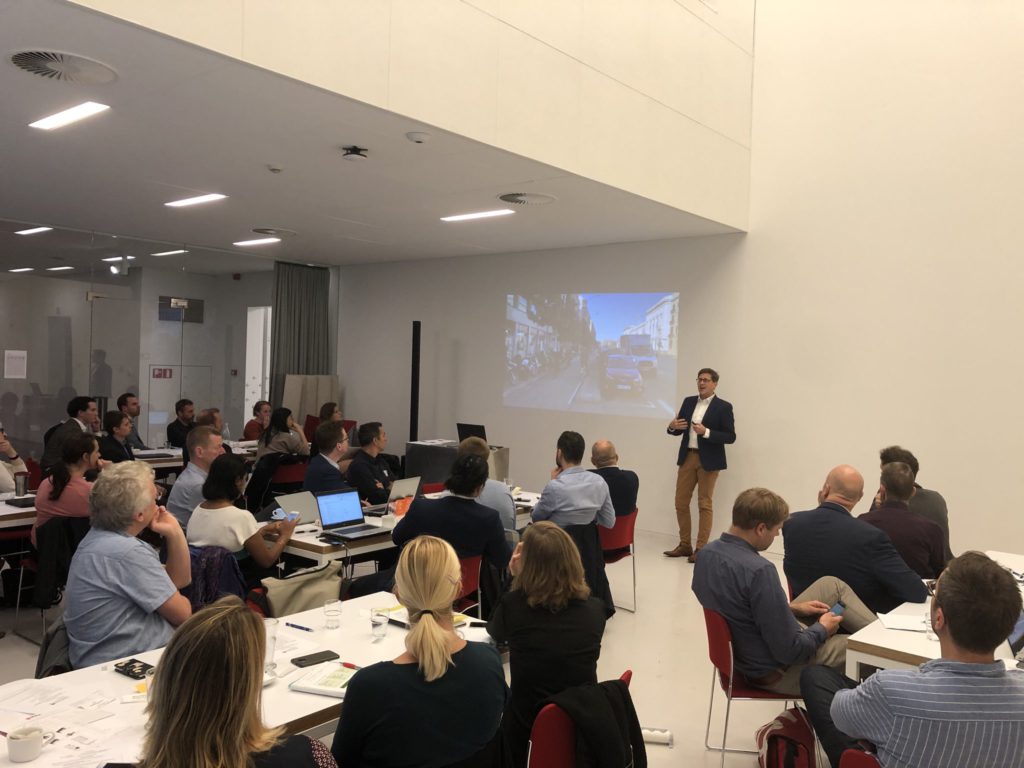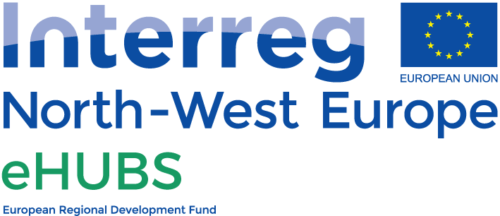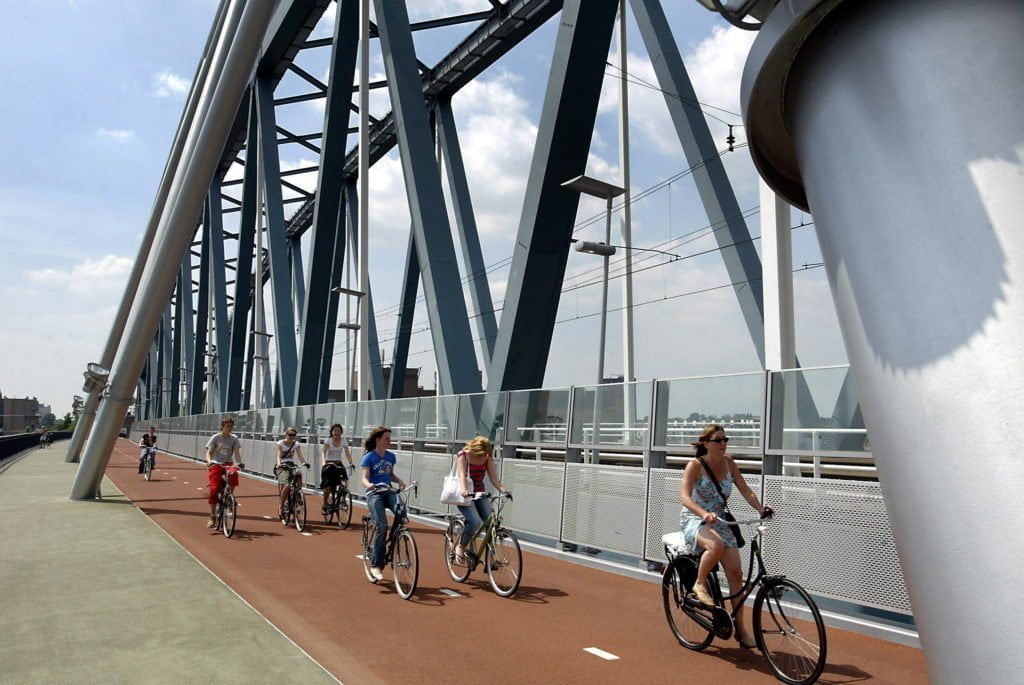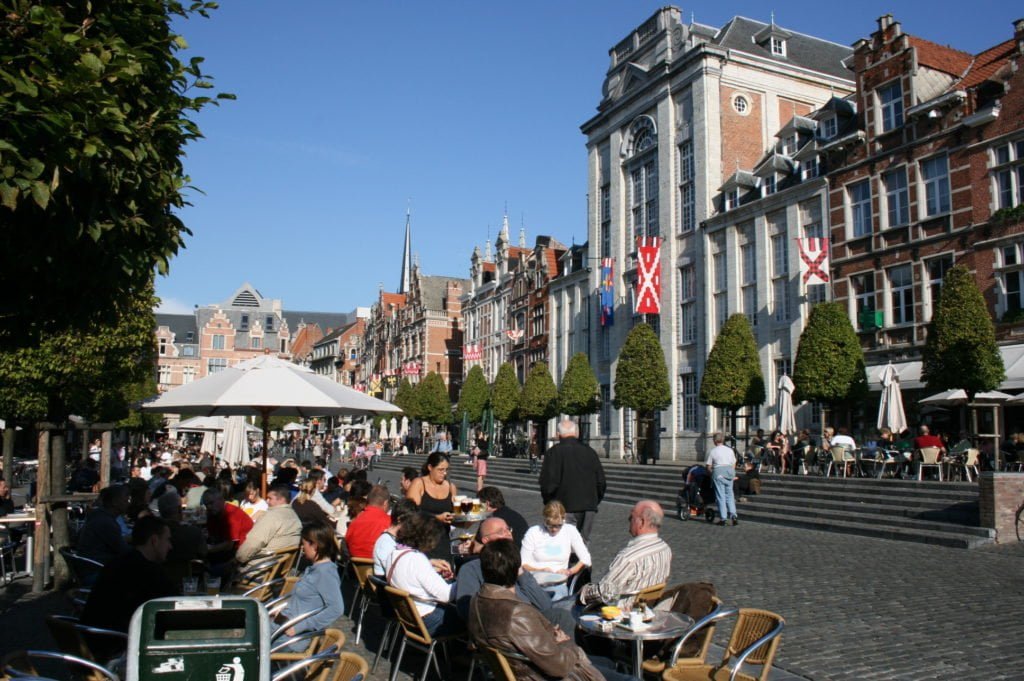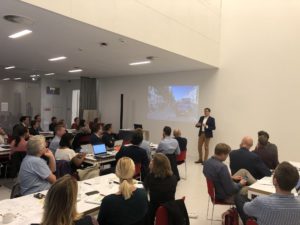Cities join forces with mobility providers to identify business cases for eHUBS
On Thursday, the 24th of October, the eHUBS project held a workshop in Leuven dedicated to the identification of effective forms of public-private cooperation, with the objective to effectively deploy shared and electric mobility hubs in cities in North-West Europe. As the implementation of eHUBS involves many stakeholders from both the public and the private sector, the workshop served as a platform for exchanging ideas between cities and private mobility providers, and listen to the views of private actors on the rollout of eHUBS in cities.
A wide audience of 45 participants attended the workshop: the six eHUBS pilot cities, universities, network organisations involved in the project, representatives of other cities interested in the eHUBS project, such as Antwerp and Brussels, and providers of micromobility, shared mobility, charging infrastructure and MaaS.
The workshop kicked off with the introductory presentations by Karen Vancluysen, Secretary General of Polis, on the eHUBS project and the current micromobility (r)evolution, and by Philippe Crist, Advisor for Innovation and Foresight for the International Transport Forum at the OECD, on data and urban space management. These were followed by the presentations of the eHUBS implementation strategies and use cases in pilot cities by Debbie Dekkers of the City of Amsterdam and Liselotte van Gils from the City of Leuven.
The second part of the workshop was dedicated to five parallel focus groups led by the eHUBS pilot cities, which aimed to discuss a number of different aspects related to the business cases for eHUBS. Among others, the topics touched upon were: objectives of the implementation of eHUBS in the city environment, possible business models, definition of target groups, potential barriers to eHUBS use, minimum service levels for eHUBS, responsibilities of different stakeholders, data sharing standards.
The workshop proved to be successful in acknowledging the high interest of different stakeholders active in the provision of new mobility services, in getting involved with cities for a fruitful collaboration in the deployment and promotion of eHUBS.
Thanks to the feedback gathered in the workshop, the eHUBS project partners will gain insight into the crucial elements of a positive business case for eHUBS. As a next step, a business model canvas will be drafted under the lead of the University of Antwerp, in order to organise the information obtained, so that also other local authorities and stakeholders can use it as a starting point to plan the deployment and promotion of eHUBS in cities. The tool will contribute to the elaboration and the reflection on the conclusions of the workshop and it will be disseminated among the participants and any stakeholder who might be interested in the replication of the eHUBS experience.
